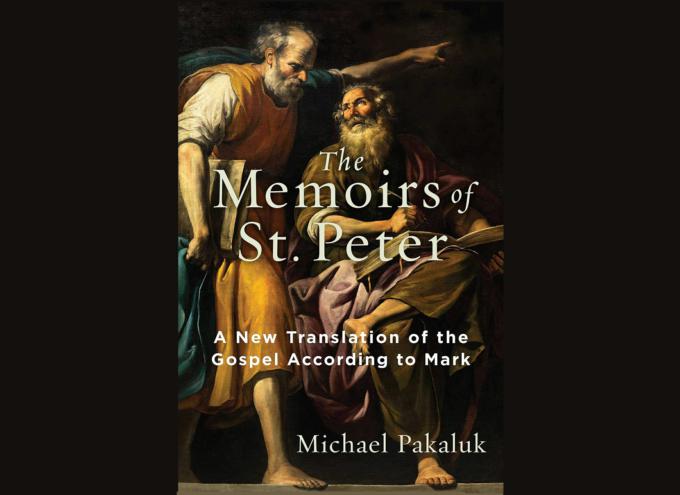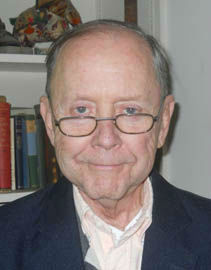
Culture

Shaw
In "The Memoirs of St. Peter" (Regnery), Michael Pakaluk takes on what someone unaware of the pitfalls of translation might consider a simple task: to render the gospel of St. Mark in English that resembles as nearly as possible the Greek of the original.
Simple, however, this is not. That Pakaluk pulls it off -- and does so in a surprisingly engaging manner -- is no small achievement.
By way of illustration, consider a typical passage in Mark's 14th chapter. Judas and the Temple guards have just arrived at Gethsemane bent on seizing Jesus:
"And right then, while he was still speaking, Judas shows up, one of the Twelve, and with him a crowd with swords and clubs, along with the chief priests and scribes and elders. The man betraying him had proposed a sign to them and said, 'The one that I shall kiss is he. Capture him and lead him away securely.' So when he arrives, he straightway comes up to him and says, 'Rabbi!' He kissed him!"
Note the bouncing back and forth between tenses. That's Mark. Most translations handle it by converting all the verbs to past tense. Pakaluk retains the historic present, using it adroitly to convey the dramatic immediacy of the Greek original.
This is consistent with Pakaluk's thesis that this, the shortest and, it's generally believed, first of the three synoptic gospels, is what the translation's title boldly asserts -- Mark's transcription of Peter's recollections of the two or three years he spent with Jesus, witnessing his miracles, hearing his teaching, agonizing over his crucifixion, and ultimately exulting in his resurrection.
Just now, of course, this is a daring and controversial position to hold. The reigning conventional wisdom among Scripture scholars is that, as Father John Meier says in his study "A Marginal Jew" (itself a much-discussed example of "historical Jesus" scholarship), Mark's gospel was assembled from existing "collections of oral or written traditions" concerning Christ.
Pakaluk, who teaches ethics and social philosophy at the Catholic University of America, takes his stand on other, earlier sources. Writing in 150 AD, Justin Martyr reflected what apparently was by then the commonly shared understanding that the Gospel of Mark indeed was in effect Peter's memoirs. That remained the consensus, so that St. Jerome in the fourth century was only repeating what was universally agreed when he said, "Mark, the disciple and interpreter of Peter, wrote a short gospel ... embodying what he had heard Peter tell."
Claiming no authority whatsoever on these matters, I can't help suspecting that both Justin Martyr and the historical Jesus people may be right. After all, why shouldn't Mark have bolstered his recall of Peter's discourses with "collections of oral or written traditions?"
Besides the translation, Pakaluk's commentary and notes help to shed clear analytical light on the text, besides occasionally providing an amusing touch, as when Pakaluk speculates on why the Gospel's chapter nine concludes with some miscellaneous teachings by Jesus on authority and discipleship unrelated to what comes before.
"Sometimes," Pakaluk remarks, "writing in the ancient world was adjusted to the length of a scroll. If in a certain scroll Mark found that the two stories he planned on recording, the Transfiguration and the exorcism, took up only two-thirds of the scroll, then to make good use of the expensive writing material he might well have resourcefully filled up the rest with related teachings."
As with the translation, so also reading that does a lot to bring St. Mark and his Gospel alive for us.
- Russell Shaw is the author of more than twenty books. He is a consultor of the Pontifical Council for Social Communications and served as communications director for the U.S. Bishops.
Recent articles in the Culture & Events section
-
'Dignitas' and the mediaRussell Shaw
-
Scripture Reflection for April 14, 2024, Third Sunday of EasterDeacon Greg Kandra
-
St. Helena's House is established in the South EndThomas Lester
-
Is this synodality?Russell Shaw
-
Poking the hornet's nest of IVFFather Tadeusz Pacholczyk


















